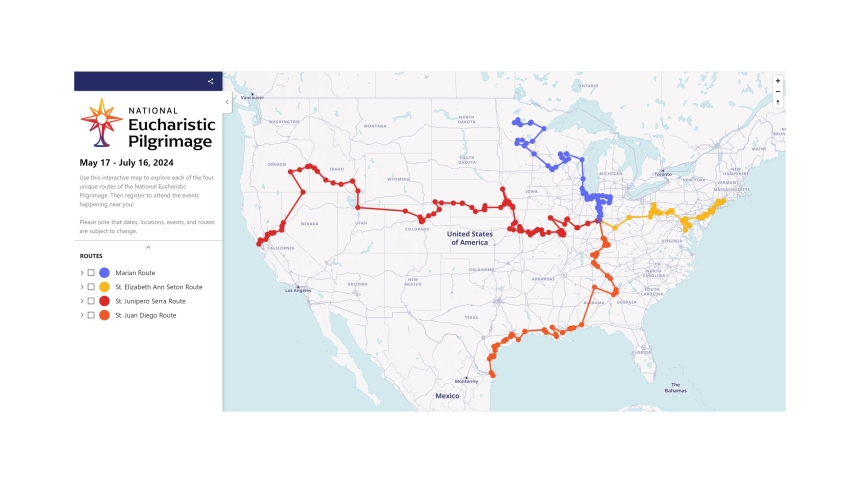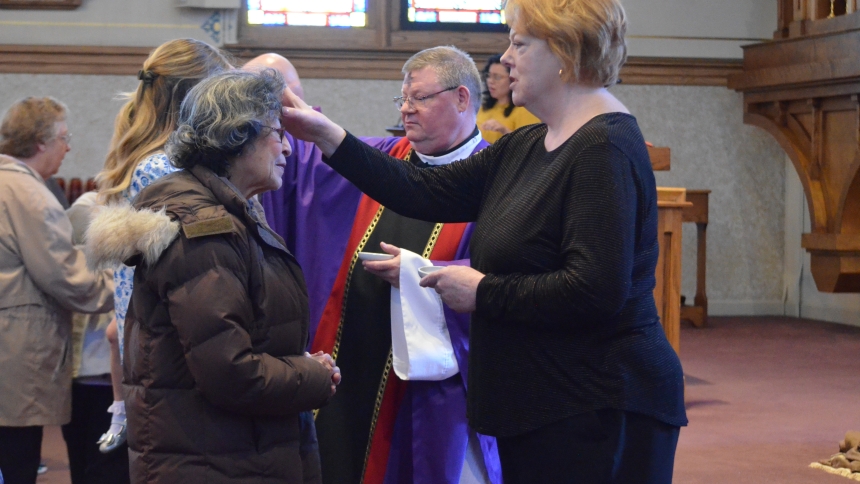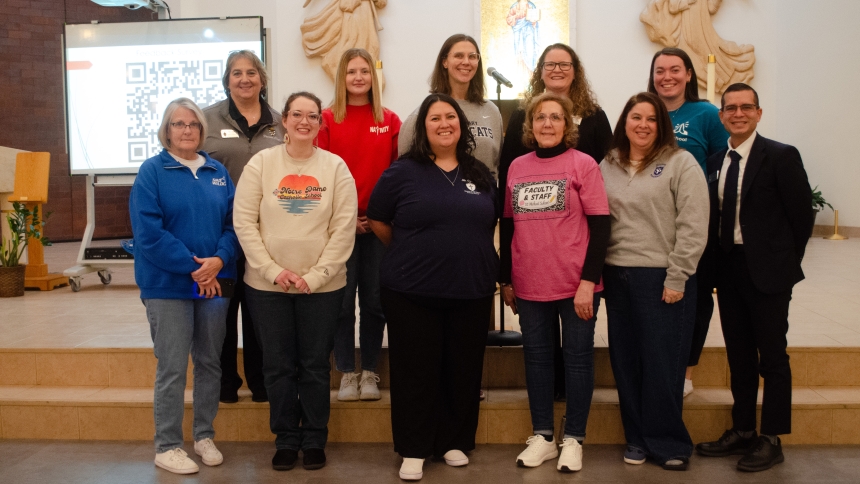
(OSV News) - On May 18-19, groups of eight young adults will leave San Francisco; New Haven, Connecticut; San Juan, Texas; and Itasca State Park in Minnesota.
For eight weeks they'll travel, mostly on foot, along four routes through major U.S. cities, small towns and countryside toward Indianapolis, where they're expected to arrive July 16, the day before the opening of the National Eucharistic Congress.
Together, they'll cover more than 6,500 miles over 27 states and 65 dioceses. With them every step of the way will be the Eucharist, held in a specially designed monstrance, or reserved in a support vehicle's tabernacle.
The National Eucharistic Pilgrimage is a major prelude to the National Eucharistic Congress, which expects to bring together tens of thousands of Catholics July 17-21 in Indianapolis' Lucas Oil Stadium for worship, speakers and Eucharist-centered events. The pilgrimage and the congress are part of the National Eucharistic Revival, a three-year initiative of the U.S. Catholic bishops that began in 2022 with the aim of deepening Catholics' love for the Eucharist.
"A cross-country pilgrimage of this scale has never been attempted before," said Tim Glemkowski, CEO of the Denver-based National Eucharistic Congress, Inc., in a Feb. 22 media release announcing updated routes and related events. "It will be a tremendously powerful action of witness and intercession as it interacts with local parish communities at stops all along the way."
The pilgrimage's four groups of Perpetual Pilgrims are young adults ages 19-29 selected in an application process to travel the full length of each route. Their names will be announced March 11.
People who wish to travel as a "day pilgrim" or attend a pilgrimage-related event along the routes may register online at www.eucharisticpilgrimage.org. Day pilgrims must make their own arrangements for meals, transportation and lodging, as needed.
Each route passes religious and secular landmarks, including Folsom State Prison in California, Ellis Island in New York, the campuses of the University of Notre Dame in Indiana and Benedictine College in Kansas, and the shrines of Our Lady of Champion in Wisconsin, the Most Blessed Sacrament in Alabama, and St. Elizabeth Ann Seton in Maryland.
Dioceses that the routes cross through have planned special events to welcome the pilgrims. Detailed event information for these events and each of the routes - the St. Junipero Serra Route from the West, St. Juan Diego Route from the South, St. Elizabeth Ann Seton Route from the East and Marian Route from the North - will be posted at www.eucharisticpilgrimage.org.
Pilgrimage events will include Masses, Eucharistic adoration and prayer, as well as service projects. All public events are free.
Supporting the Perpetual Pilgrims spiritually will be a "rotating cadre" of 30 Franciscan Friars of the Renewal. Father Roger Landry of the Diocese of Fall River, Massachusetts, plans to accompany the Seton Route pilgrims for the entire route.
"Following Jesus and praying through cities and rural towns is going to be life changing for the church across America," Glemkowski said. "I personally cannot wait to participate in this pilgrimage!"
Caption: This is an updated map showing the four routes of the National Eucharistic Pilgrimage to the National Eucharistic Congress in 2024. Pilgrims traveling in "Eucharistic caravans" on all four routes will begin their journeys with Pentecost weekend celebrations May 17-18, 2024, leaving May 19. They will all converge on Indianapolis July 16, 2024, the day before the five-day Congress opens. (OSV News illustration/courtesy National Eucharistic Congress)



